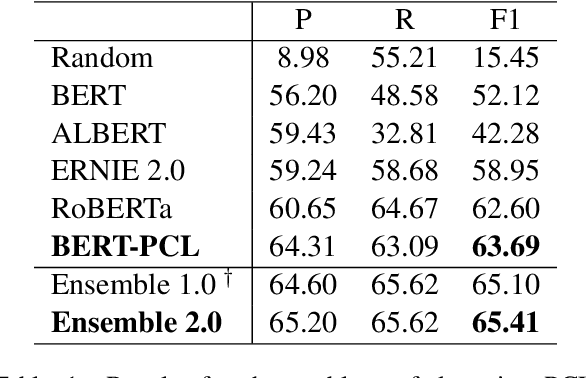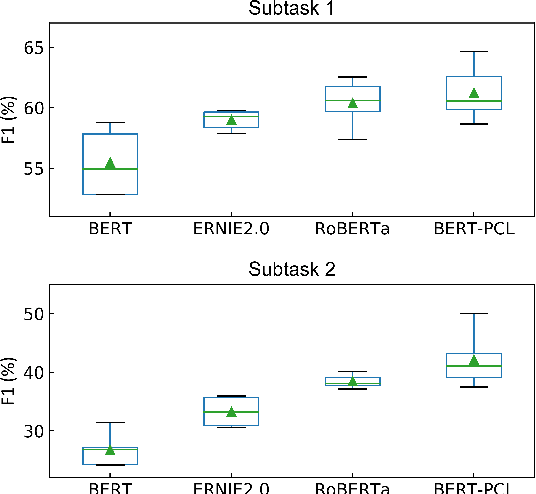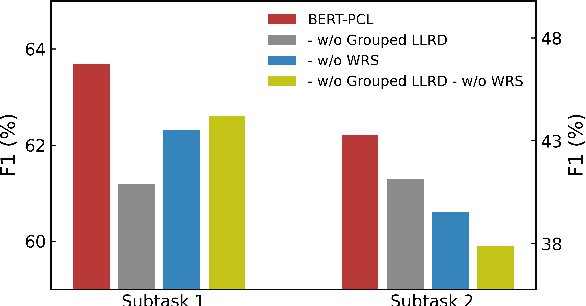Xiyang Du
Agentar-Fin-R1: Enhancing Financial Intelligence through Domain Expertise, Training Efficiency, and Advanced Reasoning
Jul 24, 2025Abstract:Large Language Models (LLMs) exhibit considerable promise in financial applications; however, prevailing models frequently demonstrate limitations when confronted with scenarios that necessitate sophisticated reasoning capabilities, stringent trustworthiness criteria, and efficient adaptation to domain-specific requirements. We introduce the Agentar-Fin-R1 series of financial large language models (8B and 32B parameters), specifically engineered based on the Qwen3 foundation model to enhance reasoning capabilities, reliability, and domain specialization for financial applications. Our optimization approach integrates a high-quality, systematic financial task label system with a comprehensive multi-layered trustworthiness assurance framework. This framework encompasses high-quality trustworthy knowledge engineering, multi-agent trustworthy data synthesis, and rigorous data validation governance. Through label-guided automated difficulty-aware optimization, tow-stage training pipeline, and dynamic attribution systems, we achieve substantial improvements in training efficiency. Our models undergo comprehensive evaluation on mainstream financial benchmarks including Fineva, FinEval, and FinanceIQ, as well as general reasoning datasets such as MATH-500 and GPQA-diamond. To thoroughly assess real-world deployment capabilities, we innovatively propose the Finova evaluation benchmark, which focuses on agent-level financial reasoning and compliance verification. Experimental results demonstrate that Agentar-Fin-R1 not only achieves state-of-the-art performance on financial tasks but also exhibits exceptional general reasoning capabilities, validating its effectiveness as a trustworthy solution for high-stakes financial applications. The Finova bench is available at https://github.com/antgroup/Finova.
VarMAE: Pre-training of Variational Masked Autoencoder for Domain-adaptive Language Understanding
Nov 01, 2022



Abstract:Pre-trained language models have achieved promising performance on general benchmarks, but underperform when migrated to a specific domain. Recent works perform pre-training from scratch or continual pre-training on domain corpora. However, in many specific domains, the limited corpus can hardly support obtaining precise representations. To address this issue, we propose a novel Transformer-based language model named VarMAE for domain-adaptive language understanding. Under the masked autoencoding objective, we design a context uncertainty learning module to encode the token's context into a smooth latent distribution. The module can produce diverse and well-formed contextual representations. Experiments on science- and finance-domain NLU tasks demonstrate that VarMAE can be efficiently adapted to new domains with limited resources.
PALI-NLP at SemEval-2022 Task 4: Discriminative Fine-tuning of Deep Transformers for Patronizing and Condescending Language Detection
Mar 09, 2022



Abstract:Patronizing and condescending language (PCL) has a large harmful impact and is difficult to detect, both for human judges and existing NLP systems. At SemEval-2022 Task 4, we propose a novel Transformer-based model and its ensembles to accurately understand such language context for PCL detection. To facilitate comprehension of the subtle and subjective nature of PCL, two fine-tuning strategies are applied to capture discriminative features from diverse linguistic behaviour and categorical distribution. The system achieves remarkable results on the official ranking, namely 1st in Subtask 1 and 5th in Subtask 2. Extensive experiments on the task demonstrate the effectiveness of our system and its strategies.
 Add to Chrome
Add to Chrome Add to Firefox
Add to Firefox Add to Edge
Add to Edge